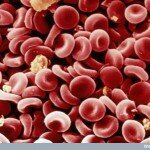 When Daniel first asked me if I wanted to be involved in Genomes Unzipped, I was one of the more hesitant participants. I weighed up the pros and cons, but in the end what sold me was that after almost a decade of curiosity I finally had the opportunity to find out my genotype for the hereditary haemochromatosis (HH) variants in the gene HFE. But things didn’t unfold quite how I’d expected, and I’m still left with some unanswered questions about HH in my family.
When Daniel first asked me if I wanted to be involved in Genomes Unzipped, I was one of the more hesitant participants. I weighed up the pros and cons, but in the end what sold me was that after almost a decade of curiosity I finally had the opportunity to find out my genotype for the hereditary haemochromatosis (HH) variants in the gene HFE. But things didn’t unfold quite how I’d expected, and I’m still left with some unanswered questions about HH in my family.
Tag Archive for 'phase2'
For some people, genetic information is formidably powerful. It can reveal that you have inherited a debilitating disease which lies unavoidably in your future, that you have a massively increased susceptibility to a particular cancer which can only be mitigated by surgery, or that you are not biologically related to your parents and siblings.
But, for many people, it’s actually quite mundane and uninformative. I’m one of those people. Undergoing genome-wide profiling was interesting, educational and worthwhile, and I would certainly recommend it as a voyage of exploration. But it hasn’t really been useful for my health. (It’s perhaps worth noting that a SNP profile covers only a fraction of the potential disease-causing variants, but nonetheless I doubt there’s anything I need to be scared of lurking in the rest of my genome.)
So, what did I learn?
Continue reading ‘My delightfully uninteresting genome’
The story behind this post is that my wife recently gave birth to our first son and we experienced a funny story about genetics the day following the birth. Before I start I should say, to reassure the reader, that I have no doubt that I am indeed the father of my child. But as you will see, a non-geneticist might have become worried when faced with the same situation.
Firstly, my wife has a negative rhesus type. This has important medical implications because if the baby were to have a positive rhesus type, she would create antibodies against this marker which could be life-threatening for any subsequent child of positive rhesus type. Basically this is a relatively big deal, but there are ways to deal with this, and therefore knowing the blood type of the baby is essential.
The day after the birth, while we are both lying on our bed, very tired, a midwife comes by and asks us whether we know the rhesus status of the baby. We answer negatively, she checks her notes and says, “Ah, good news, the baby is rhesus negative. The father must also be rhesus negative then!” Well, I am not…
I agreed to make my 23andMe genotyping results publicly available as part of GNZ without a moment’s hesitation. This is in part because I knew the results were actually a bit dull (in a good way, I suppose) – I’m not at vastly increased or decreased risk for any diseases (based on research so far), and I was unsurprised to find out that I have blue eyes. I was also unsurprised that 23andMe identified me as most likely of north European ancestry.
Several hours after we released our data, however, I was pointed to a post where Dienekes Pontikos wrote about the results of running all our data through his ancestry prediction program. While just about everyone was quite confidently predicted to be almost entirely of northwestern European descent, this analysis gave me a point estimate of 20% Ashkenazi Jewish ancestry. Within hours, several people had asked me about this, and I had no real response. So I decided to take a look at the data myself; some basic analyses are below.
Continue reading ‘Am I partly Jewish? Testing ancestry hypotheses with 23andMe data’
 RSS
RSS Twitter
Twitter
Recent Comments